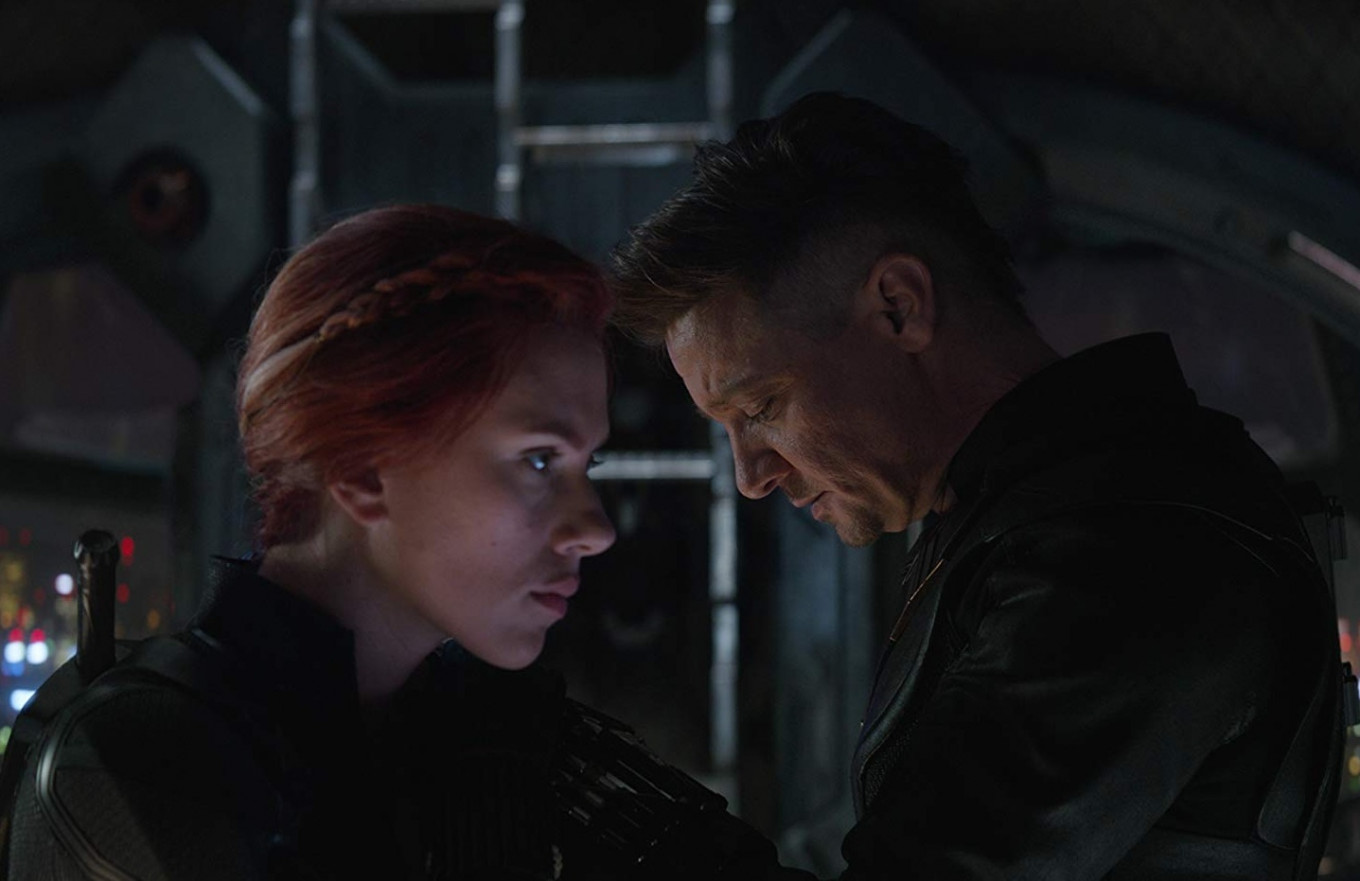Popular Reads
Top Results
Can't find what you're looking for?
View all search resultsPopular Reads
Top Results
Can't find what you're looking for?
View all search resultsArtistic individualism the real casualty of 'Avengers: Endgame'
Avengers: Endgame functions not only as a narcissistic pat on the company’s own back but a paean to corporate synergy triumphing over often-risky choices that once defined —and were once espoused by — individual artists.
Change text size
Gift Premium Articles
to Anyone
T
he long, at times embarrassing, history of American studio blockbusters is founded on consolidated efforts to capture the coveted “lightning-in-a-bottle” moment that is expected to pave the way for more of the same.
Financial and, to a certain extent, critical success have served as harbingers of homogeneity. A certain crop of culturally significant pieces of filmmaking from the preceding era is bound to be retroactively seen as a sprawling scrapyard in which image-makers of the following generation could freely take apart fool-proof elements and “formulas” and transplant those used parts into their nascent bodies of work to ensure that they stimulate calculated responses from the public.
This is not to say that every visionary in their own respective era is automatically subservient to the blind pursuit of Hollywood’s brand of commercial success. Underneath the shiny surface of mass appeal, paradigmatic outliers such as Tim Burton or Sam Raimi fought to keep their artistic license once they arrived at the utilitarian landscape of corporate mandates and profit margins.
It is not by accident that yours truly mentions those two names, as Burton and Raimi belong to the formative first class of what I would like to call the School of Modern Comicbook Superhero Cinema. Their works within the subgenre, spanning from the late 1980s and mid-1990s — Burton’s Batman and Batman Returns — and the early 2000s — Raimi’s Spider-Man trilogy — more than anything else, are now taken as quasi-religious texts that inform the creation of super-powered monomyths in the postmodern age demarcated by 2008’s one-two punch of Christopher Nolan’s The Dark Knight and Jon Favreau’s Iron Man.
The stark contrast (pun unintended) between the stylistic and thematic modes of Nolan's and Favreau’s seminal progenitors marked the beginning of a debate regarding which would rise victorious in the race for pop-cultural domination — was it the former’s brand of textual grit and moral ambivalence, or the latter’s penchant for snappy humor and colorful personalities? The debate would extend far beyond cinema discourse, to the once-maligned niche of geekdom — present day’s purveyor of coolness, thanks to hegemony, after decades of cultural prejudice — which turned what used to be a reasonable discussion into a vicious verbal colosseum where self-proclaimed fanatics of DC Comics/Films and Marvel Comics/Studios would duke it out.
Fast forward a decade later, it has become clear that the pendulum has swung very far toward Marvel Studios. With each successive entry in its long-term corporate agenda — ambitiously dubbed Marvel Cinematic Universe (MCU) — Disney’s flagship superhero arm plants its claws even deeper into public consciousness. Similar to its modern counterpart, Marvel’s postmodern house style has been taken as something resembling a gospel. It did not take long for DC Films to (figuratively) concede defeat and take pages straight from Marvel’s playbook as it launched its own cinematic universe.
Avengers: Endgame, billed as the grand conclusion to Marvel’s decade-long investment in longform cinematic storytelling, therefore functions not only as a narcissistic pat on the company’s own back, but a paean to corporate synergy triumphing over often-risky choices that once defined —and were once espoused by — individual artists.
Read also: ‘Avengers: Endgame’ sets box-office record at $1.2 billion
Endgame continues the story thread left hanging at the end of Avengers: Infinity War, where a bunch of superheroes literally vanished into thin air following franchise big-bad Thanos’ insidious act of finger-snapping while wearing an oversized gauntlet filled with colorful magical rocks. Similar to its predecessor, Endgame banks on the premise of narrative finality as an obvious metatextual proxy of company policy — of course character A dies, while B is resurrected because the former’s multiple-picture contract has expired, whereas the latter’s next film was already in the pipeline months prior. The jarring introduction of mortality in Infinity War, as well as its pervasive omnipresence in Endgame, seemed more indicative of corporate machinations than organic narrative growth.
In any case, my somewhat grumpy dismissal of Marvel’s unabashed corporate transparency does not lessen the sheer cultural impact of Endgame or the entire MCU in general. Its massive success, which now borders on cultural monopoly, is already accepted by most members of the moviegoing public as the new template for future blockbusters.
Endgame is indeed fun and competent, in the broadest and most superficial sense of the adjectives. The good old Marvel charm has been refined and optimized throughout the last decade, so maximum audience appeal has always seemed guaranteed.
The film is, above all, historic. Marvel and Disney have finally completed their quest for cultural domination, thus reserving an entire chapter in an as-yet-incomplete book on the postmodern history of American superhero cinema.
The long history of blockbusters is defined by attempts to capture the coveted “lightning-in-a-bottle” moment that is expected to pave the way for more of the same.
History, as they say, does repeat itself. (wng)
***
The writer is a reporter at The Jakarta Post. The opinions expressed in this article are those of the author and do not reflect the official stance of the Post.











